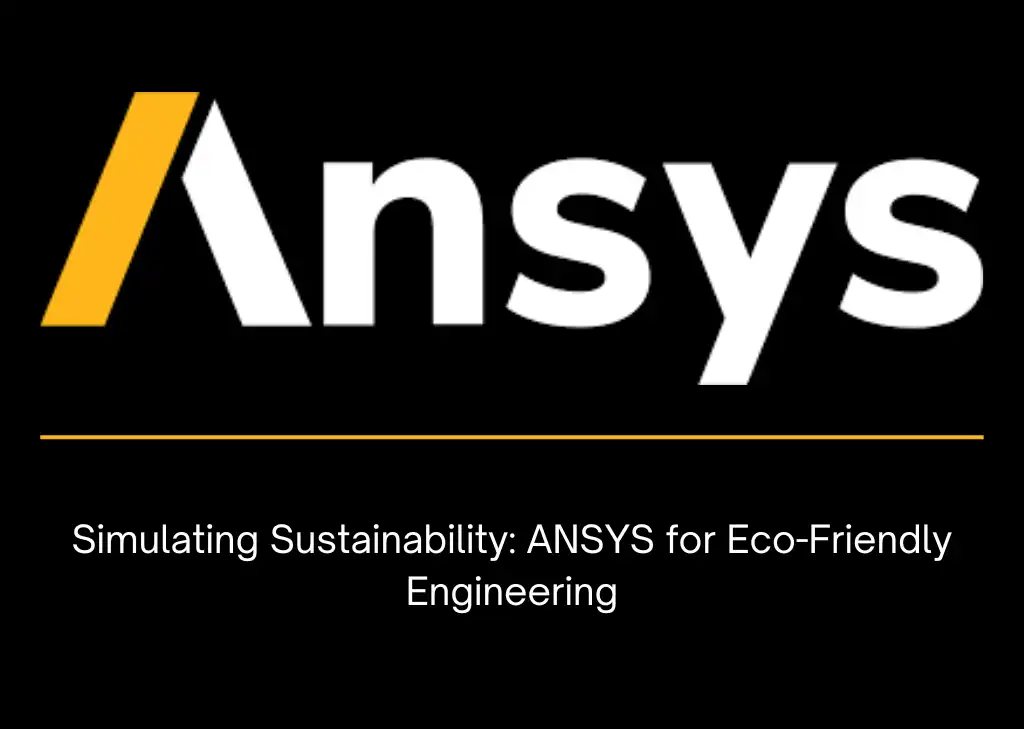Introduction:
In the age of increasing environmental awareness, sustainability has become a paramount
consideration in engineering and product development. Companies worldwide are embracing eco-friendly practices to
minimize their ecological footprint. ANSYS, a leading provider of engineering simulation software, plays a pivotal
role in advancing sustainable engineering by enabling comprehensive simulations that optimize designs for
environmental performance. In this blog, we will explore how ANSYS contributes to eco-friendly engineering through
simulation.
The Sustainability Challenge:
As the global community faces environmental challenges, engineers and designers are
seeking innovative ways to create products and systems that are both efficient and environmentally friendly.
Sustainable engineering involves minimizing resource consumption, reducing emissions, and ensuring the longevity of
products through their life cycles.
ANSYS: A Tool for Sustainable Engineering:
- Materials and Resource Optimization:
ANSYS provides a robust platform
for engineers to simulate and optimize material usage. By analyzing the performance of different materials
under various conditions, designers can choose eco-friendly alternatives that meet performance criteria
while minimizing environmental impact.
- Energy Efficiency Simulation:
The software allows engineers to simulate energy consumption and
efficiency in diverse systems, from electronic devices to industrial machinery. By optimizing the design for
energy efficiency, companies can reduce operational costs and contribute to overall energy conservation.
- Life Cycle Assessment:
ANSYS facilitates a comprehensive life cycle assessment of products.
Engineers can simulate the environmental impact of a product from raw material extraction to manufacturing,
usage, and disposal. This holistic approach helps identify areas for improvement and informs sustainable
design decisions.
- Renewable Energy Systems:
Simulation plays a crucial role in the
development and optimization of renewable energy systems. ANSYS enables engineers to model and analyze the
performance of solar panels, wind turbines, and other sustainable energy technologies, contributing to the
transition towards cleaner energy sources.
- Reducing Emissions in Transportation:
For the automotive and aerospace industries, ANSYS helps optimize
vehicle designs for fuel efficiency and emissions reduction. Aerodynamic simulations, combustion analysis,
and lightweighting studies contribute to the development of greener transportation solutions.
Case Studies in Eco-Friendly Engineering:
To illustrate ANSYS’s impact on sustainable engineering, consider case studies where
companies have successfully used the software to design environmentally conscious solutions. Examples may include
the development of energy-efficient HVAC systems, eco-friendly packaging materials, or the optimization of water and
wastewater treatment processes.
Collaborative Sustainability Initiatives:
ANSYS fosters collaboration among engineers and sustainability professionals. Its
simulation platform allows multidisciplinary teams to work together seamlessly, ensuring that sustainability
considerations are integrated into every stage of the product development process.
Conclusion:
ANSYS is at the forefront of the sustainable engineering movement, providing engineers
with the tools they need to create eco-friendly solutions. Through material optimization, energy efficiency
simulation, lifecycle assessments, and support for renewable energy technologies, ANSYS empowers companies to make
environmentally conscious design decisions. As we collectively strive for a more sustainable future, ANSYS stands as
a valuable ally in the pursuit of engineering solutions that balance innovation with environmental responsibility.

